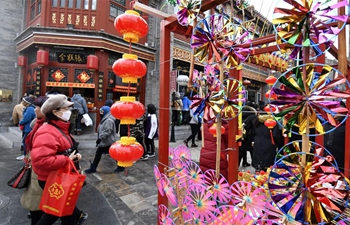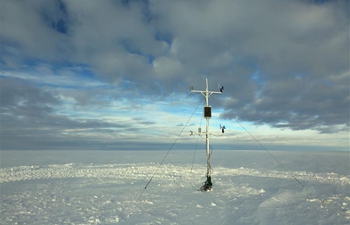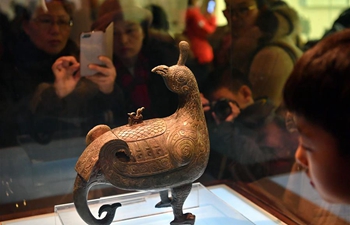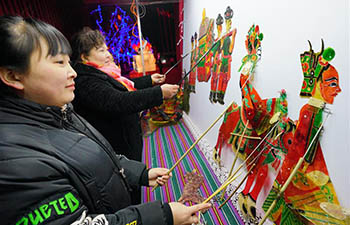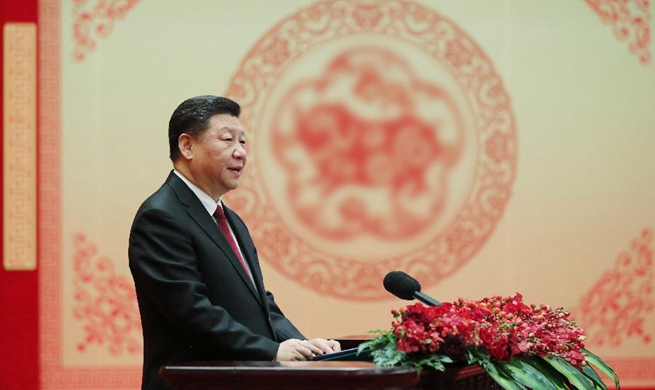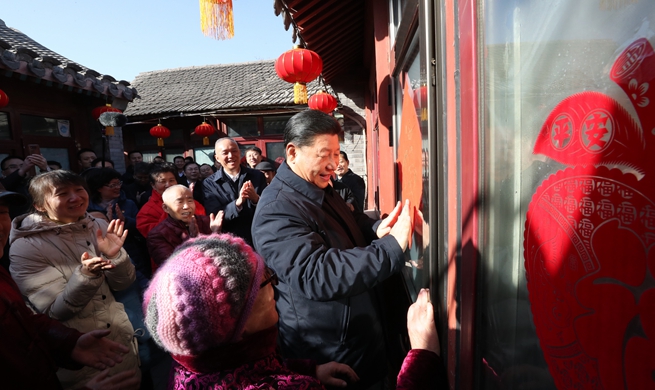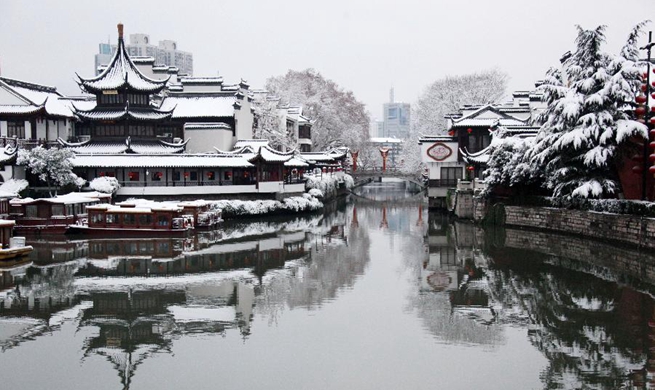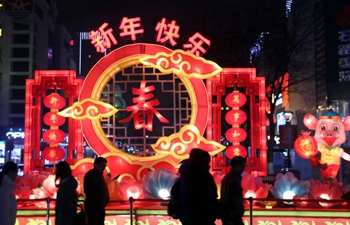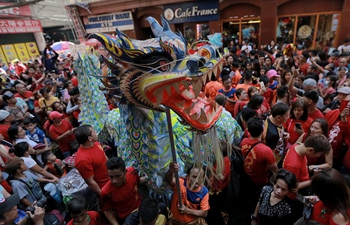ROME, Feb. 8 (Xinhua) -- Italy this week blocked a European Union (EU) proposal that would recognize Venezuela's main opposition leader Juan Guaido as interim president, a move seen by analysts here as a rift not only among EU members but also within Italy itself.
EU member states had been debating for days how to address the Venezuela issue before the come-up with the proposal, with some countries calling for backing to the opposition, while some nervous about setting a precedent of recognizing a self-proclaimed leader.
A joint EU statement recognizing Guaido as interim president was finally vetoed by Italy.
"The Five-Star Movement and this government will never recognize people who appoint themselves president," said Alessandro Di Battista, a member of parliament and a leading figure in the Five-Star Movement.
The development has left EU officials scrambling to figure out how to proceed without the backing of one of the bloc's founding members.
One preliminary step involved a group of European states including France, Germany, and Britain issuing an informal statement backing Guaido.
Venezuela on Monday rejected the statement by some European countries, saying such a decision "is in open violation of the principles and practices that govern diplomatic ties, setting a dangerous precedent for peaceful coexistence between nations".
Meanwhile, Guaido will send a team of diplomats to Rome to lobby Italian leaders for their support. They are set to arrive next Monday.
Invoking "veto power" is not something new within the EU, according to the analysts, but is rare when it comes to international relations.
"It is perfectly legal for one country to veto a joint statement, and it occasionally happens in some areas. But when it comes to international relations this is very rare," Nicola Missaglia, a research fellow with the Italian Institute for International Political Studies, a think tank, explained to Xinhua.
Moreover, according to Italian analysts, it more accurately illustrated a rift between Italy's leaders, which could have serious consequences for the country.
It's not the case that the Italian government is united in its view, they believed. The League, a nationalist party and the junior partner in the Italian government, said it believes Guaido should lead Venezuela. And Sergio Mattarella, Italy's president, has called on the coalition partners to "show responsibility and clarity on a common position" with the European Union.
"This is really showing the difficulty for these two parties to cooperate," Nicola Bilotta, an international policy researcher with the Institute for International Affairs, said in an interview. "The Five-Star Movement and the League disagree on most policy areas, but this one is particularly high profile."
Missaglia said that however the situation resolves itself, it could have negative consequences for Italy.
"We are in the midst of a very challenging period for the European Union," he said, mentioning the continent-wide economic slowdown, Brexit, impacts of the U.S.-China trade frictions, migrant issues, and uncertainty about German leadership after Chancellor Angela Merkel steps down as issues weighing on the 28-nation bloc.
"It is important for countries in Europe to show unity at this time," Missaglia said. "Italy is not doing that, and that could be a problem when Italy tries to convince other countries to back one of its priorities. Every country needs allies."
